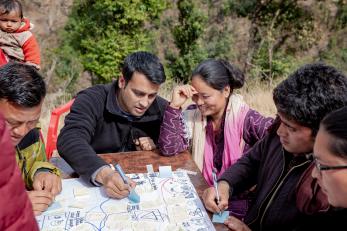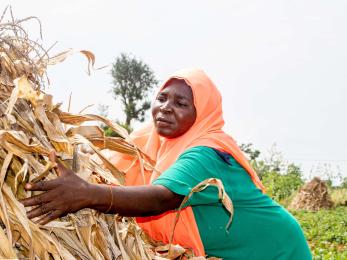Resilience Program Start-up

Synthesizing five years of learning through the United States Agency for International Development's (USAID) Promoting Agriculture, Health and Alternative Livelihoods (PAHAL) program in Nepal, Resilience Program Start-Up: How Five Years of Rich Learning through PAHAL Can Help Future Programs Start Strong provides a high-level overview of how to apply a resilience lens to key standard practices. This paper outlines five key moments during program start-up where applying a resilience lens to existing good program management standard practices is critical: contextual analysis, results chains (resilience pathways), annual work planning and intervention design, quarterly work planning and activity design, and monitoring, evaluation, and learning planning. We refer to these as resilience standard practices.
Created in partnership with the Resilience Theory to Practice* initiative, this document not only draws on PAHAL but also on several other large, multi-sector programs with the aim of providing practical guidance for development and humanitarian practitioners that can be used during start-up and/or throughout the program cycle to inform adaptive management. Each of the five chapters focuses on one of these resilience standard practices by answering a set of key questions:
- How will this enhance the good work we’re already doing? Outlining the rationale for why it is critical to apply a resilience lens to existing an existing standard practice
- Who should be involved and when? Highlighting which team members at which level might play a role in pursuing the resilience standard practice, so leaders can plan accordingly
- How do we complete the resilience standard practice? Practical overviews of the steps teams have taken in apply a resilience lens the given standard practice
- What has this looked like for other teams? Honest reflections about how and why the resilience standard practice based on the PAHAL team’s experience are recommended
*Resilience Theory to Practice is Mercy Corps' effort to deepen an understanding of the technical processes critical to applying a resilience lens to good program management practices throughout the program cycle. We then translate this “good enough” technical understanding into clear guidance for the purposes of establishing a common, foundational language for collaborative learning and co-creation, expands our growing resilience community of practice, and enables us to deepen our knowledge of what works when building resilience toward sustained wellbeing.


